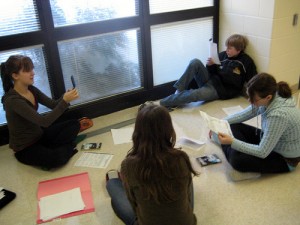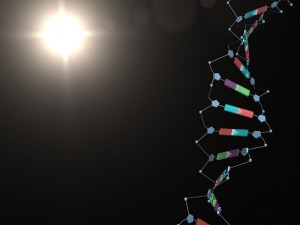
Montessori middle schools depend a lot on collaborative work and discussions. Individual parts of group work allow students to specialize in areas, hopefully, where they are interested and willing to learn the most. Then when they share their work with the group the whole group gets the information, and the person presenting it gets feedback from different perspectives. Collaborative work is excellent preparation for creative work in the future.
Some recent research by Kevin Dunbar, a neuroscience at the University of Toronto, gives some strong support to the usefulness of collaborative work. He found that group discussions, with people from different backgrounds can be much more effective at solving problems than discussions among specialists. Different backgrounds mean that each person is forced to take a step back from their expertise and think and describe the problem in a way someone else with a different perspective can understand. This allows both the expert and the person they are describing the problem to, to see the problem from different perspectives.

